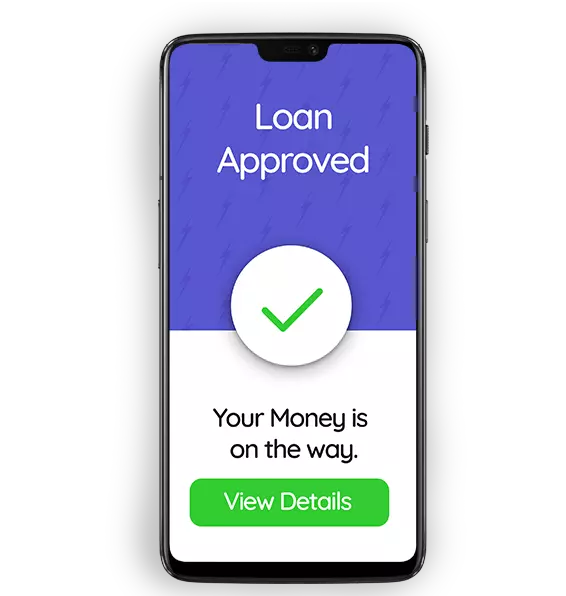Personal Loan Interest Rate
While looking at all the personal loan offers available, it’s important to find out how much interest you’ll be charged by your lender in order to obtain your total loan amount. Each bank and lender has their own set of interest rates and other associated fees (such as processing fees, foreclosure charges, and so on) that one must be aware of before choosing a lender.
Personal Loan Rates in India | October 2019
Below is a list of where you can compare personal loan interest rates India which have been updated for the month of October 2019. The interest rate for personal loan starts from 10% onwards, which varies on factors such as credit score, income, age, loan amount, repayment capacity, employment history, and relationship with lender
| BANK | INTEREST RATE (P.A.) | PROCESSING FEE | FORECLOSURE CHARGES |
|---|
| Citibank | 10.50% | Up to 3% | Up to 4% |
| HDFC | 10.75% | Up to 2.5% (min. Rs. 2,999 and max. Rs. 25,000) | 2% - 4% |
| State Bank of India | 12.05% | 0-1% + GST | 3% on prepaid amount |
| HSBC | 10.75% | Up to 1% | Up to 3.75% |
| Bank of India | 12.20% | Up to 2% (min. Rs. 1,000 and max. Rs. 10,000) | Nil |
| Axis Bank | 15.75% | Up to 2% | Nil |
| Kotak Mahindra Bank | 10.99% | Up to 2.5% + GST | 5% |
| IndusInd Bank | 11.25% | Up to 2.5% | 4% |
| Yes Bank | 10.75% | Up to 2.5% (min. Rs.999 + GST) | Up to 4% |
| Bank of Baroda | 11.70% | Up to 2% (min. Rs. 1,000 and max. Rs. 10,000) | Nil |
| Standard Chartered | 10.89% | Up to 3% | 1%- 5% |
| Dhanalaxmi Bank | 11% | Up to 2.5% (min. Rs. 1,250) | 2% |
| Punjab National Bank | 10.45% | Up to 1.8% (min. Rs. 270) + GST | 2% on outstanding amount |
| Central Bank of India | 11.55% | Rs. 500 | As per the lender |
| Bank of Maharashtra | 12.7% | 1% (min. Rs. 1,000) | As per the lender |
| Andhra Bank | 11.75% | Rs. 400/lakh | 2% on amount paid |
| RBL Bank | 15.5% | Up to 3% | Up to 5% of outstanding principal |
| IDFC First | 12% | Up to 3.5% | 5% |
| Canara Bank | 13% | 1% (min. Rs. 250) | Nil |
| Karnataka Bank | 13.15% | 0.5% | 2% |
| Tata Capital | 10.99% | Nil | 4.5% |
| Federal Bank | 10% | Up to 3% (min. Rs. 500) | 0% - 3% |
| Corporation Bank | 12.9% | 1.50% (min. Rs. 500) | Nil |
| Indian Overseas Bank | 11.90% | Up to 0.50% | Nil |
| Vijaya Bank | 12.75% | 0.75% | As per the lender |
| City Union Bank | 12% | 1.25% | As per the lender |
| Karur Vysya Bank | 12% | Up to 1% (min. Rs. 100) | As per the lender |
| HDBFS | 14% | Up to 2% | 2% - 4% |
| J & K Bank | 12.45% | Up to Rs. 500 + GST | Nil |
| Tata Capital | 10.99% | Nil | 4.5% |
| InCred | 16% | 2% - 5% | Varies on lender |
| SMFG India Credit | 11.99% | Up to 6.5% | 0% - 7% |
| IDBI Bank | 12% | 1% | 0% - 2% of outstanding amount |
| Bajaj Finserv | 12.99% | Up to 3.99% | 4% of outstanding amount |
| Ujjivan Small Finance | 15.6% | Up to 2% (min. Rs. 2,000) | 1% - 2% |
| IndusInd Bank | 11.25% | Up to 2.5% | 4% |
| South Indian Bank | 11.60% | Up to 2% | 2% - 4% |
| Nainital Bank | 11.95% | As per the lender | As per the lender |
| IDBI Bank | 12% | 1% | 0% - 2% of outstanding amount |
| OBC | 11% | Up to 1% + GST | Nil |
Things to Check Before Finalizing Personal Loan
When you compare personal loans, there are several things that need to be considered before selecting your loan provider:
Eligibility Criteria: All banks and NBFCs that provide personal loans have their own specific eligibility criteria. To get a higher chance of loan approval, It’s important to ensure you meet the eligibility criteria of the lender, which include age, income, location, and CIBIL score.
Processing Fee: When your loan gets approved, your lender will levy a one-time processing fee, which typically ranges between 1.5% - 3%, depending on the lender. Since processing fee will increase the loan amount, it’s important to check and know what the fee would be for each lender.
Pre-Closure Charges: If you repay your outstanding balance before the completion of your loan repayment tenure, your bank may charge pre-payment or pre-closure fees. Ensure to find out how much this fee is while doing personal loan compare research.
Other Fees: It’s highly important to note that while a particular lender may levy a higher interest rate, you could stand to save a lot on the overall loan cost if the other associated costs are low. In addition to processing fee and pre-closure fees, the other costs include:
- Loan cancellation
- Default charges
- Stamp duty
- Duplicate statement issuance charge
- Cheque/EMI bounce charge
- GST
Offers & Discounts: While banks and NBFCs generally have a fixed interest rate, you can try to negotiate with them to provide a lower rate. If you have an excellent CIBIL score, credit history, and are financially stable, you might be able to secure a better interest rate. Some lenders may also offer lower interest rates during festive seasons.
How Interest Rate on Personal Loan is Determined
Credit Score: One of the most important factors that determine your interest rate is your credit score, since it is a prime indicator of your creditworthiness. A credit score of 750+ is considered excellent. Borrowers with a higher credit score will have a lower interest rate, and those with a low score will be levied a higher interest rate. It’s safe to say that credit score has the most weightage on determining your interest rate. Therefore, be sure to check your credit score regularly and work on improving it.
Credit history: A borrower’s credit history is comprised of the amount of credit they have availed in the past, their repayment habits, and defaults. Having a positive credit history also increases one’s credit score and chances of getting a lower interest rate.
Income: Another important factor that has weightage on your interest rate is your monthly salary. Borrowers that earn a higher salary are a lower risk to the lender, and therefore may receive a lower interest rate, and vice versa.
Relationship with the lender: When applying for a loan, an existing customer of a bank or NBFC may get a lower interest rate, as long as they have a positive relationship with the lender. However, this is completely at the lender’s discretion and not all existing customers will be offered attractive interest rates.


